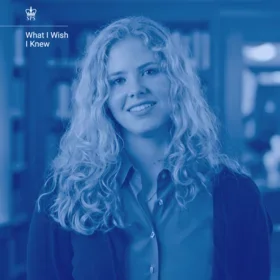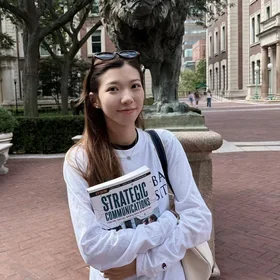Current Position: Managing Director of Mergers & Acquisition and Private Equity, Accenture
SPS Program: ’23SPS, Executive M.S. in Technology Management
Carlos Niezen has worked with Fortune 500 companies in a variety of functions and also has launched his own business, Activas Partners, a consultancy in Latin America. Currently, he is a managing director at Accenture. In addition, Niezen has an MBA from Wharton and is the author of Mentalidad Estrategica, published in 2020. So why Columbia now? Niezen explains why he opted for Columbia’s Executive M.S. in Technology Management and how it’s strengthened his capabilities.
What led you to pursue the Executive Master of Science in Technology Management—and why from Columbia?
It started when I was working in financial services and helping my organization develop strategies around payments, ecosystems, and the digital transformation of financial services. Management consulting firms typically attempt to create a strategy based on developing a roadmap, and an operating model or standard operating procedures, and then hand it over to the IT team to execute. But I realized that this doesn’t actually work. It’s very important that the strategy and technology are designed together. It needs to be completely integrated and not thought about in a sequential way. That is how I realized that I needed to close that gap in my capabilities and strengthen my understanding of technology.
Among the several reasons why I picked Columbia: it is in one of the best cities in the world and is a fabulous organization. The M.S. in Technology Management program comprehensively integrates strategy with technology and management. And third reason: the faculty. They not only have impressive credentials, but they also have pragmatic experience. Apart from that, the program was part-time and was partially remote. This meant that I was still able to interact in person with the student cohort and faculty for one week every semester.
Who was your mentor and what was it like learning from them?
Columbia has a capstone course where you develop a project that can be implemented within your organization or an independent entrepreneurial venture. I chose the latter. We then work on these projects throughout the semester and present our progress during the in-person residencies.
We start with conceptualizing the project, and then move to fine-tuning, preparing the financial model, compliance, and so on. Throughout this process, students are supported by a mentor. My mentor, Cloudreach’s former CTO Peter Richards, has been phenomenal. He has an international background, has been a CIO, and has worked with a few of the best global banking and finance institutions in the world. My capstone aligns well with his experience, so I’ve had the benefit of absorbing incredibly relevant insights based on his real-world experience. Since he also has entrepreneurial experience, he has been able to give insightful feedback to help shape my capstone project.
What did you think of the capstone oral defenses? What was that experience like?
We have had about three oral defenses. First, they helped me to refine my idea. We have to present our projects to an audience of experienced people, so it forced me to put my idea on paper and build it into something tangible and valuable. Second, it helped me to enhance my presentation skills. The oral defenses are preparing me to engage and confidently present to a large audience. Practicing answering tough questions about a new technology venture was my biggest takeaway.
Which aspects of the curriculum have you applied at work?
The Digital Strategy and Leadership course taught by Dr. Norm Jacknis has helped me to understand all technological tools available in the market. The class taught me the purpose of each tool, their functions, and the statistical approach to them. Dr. Jacknis was fantastic at explaining the theoretical concepts and their use cases in work settings. I also appreciate how he structured the course and the course load. Another class I valued was Accounting and Finance for Technology, taught by Conrad Fernandes. Although Fernandes comes from a finance background, he explained concepts in a clear and comprehensive way. His teaching style helped me to brush up on my understanding of valuation, cost of capital, and other similar concepts.
The Columbia University Master of Science and Executive Master of Science in Technology Management programs provide students with technical, strategic, political, and communications skills to lead teams through constant digital innovation. Students gain the knowledge and insight to provide value to an organization by anticipating the impact of technology on individuals, organizations, and industries. Graduates leverage technology for business process improvement and successfully lead initiatives and major projects within or between organizations.
The priority application deadline for fall 2023 enrollment is February 15 and the final deadline is June 15. Learn more.


